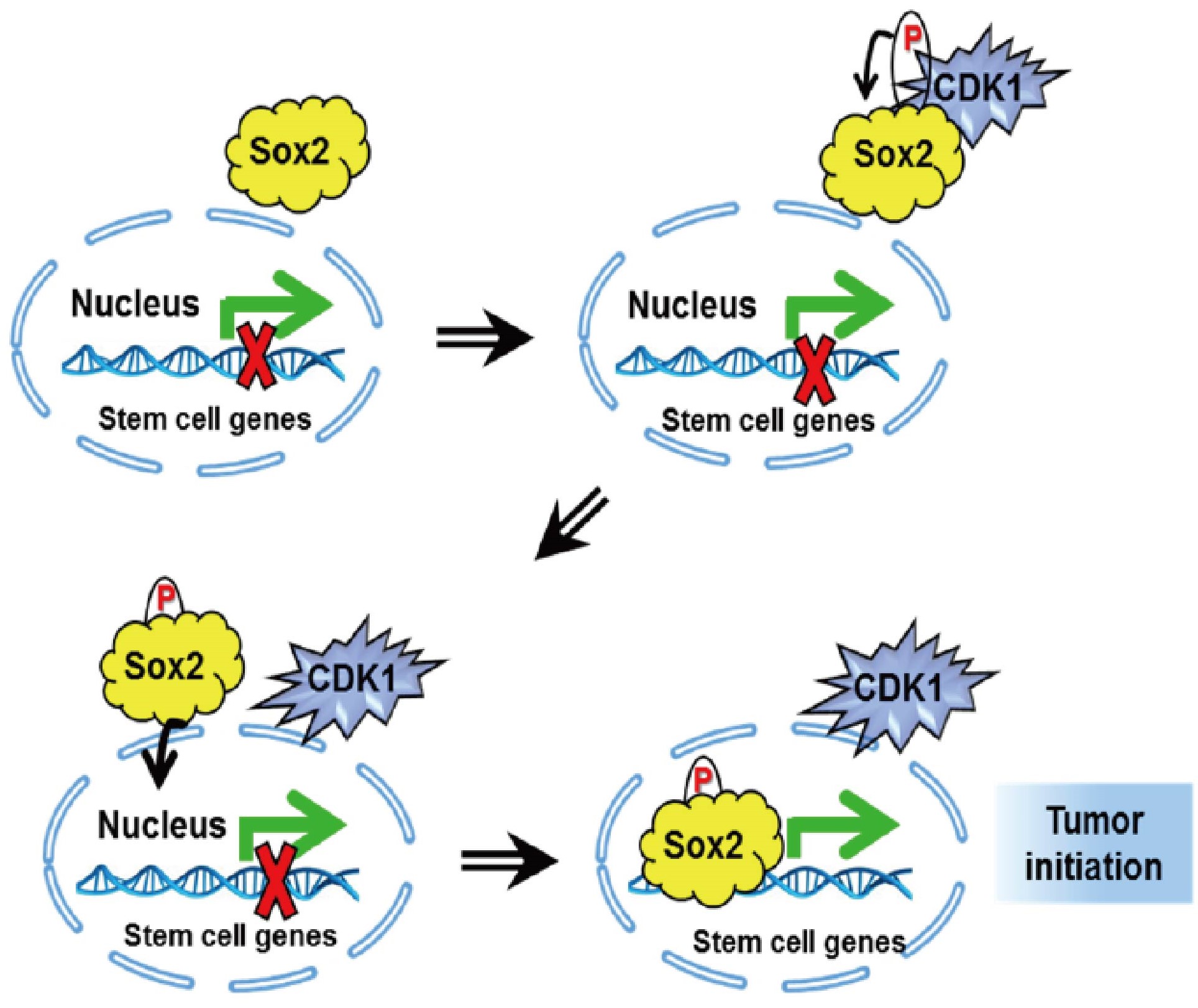CDK1 is a normal protein that drives cells through the replication cycle, while MHC class 1 molecules are also normal molecules that present a small amount of protein on the cell surface for immune system examination. Recently, a study published in the international journal Cancer Research, scientists from the University of Colorado Cancer Center found that a group of cancer cells labeled with MHC class 1 molecule and high levels of CDK1 are extremely unusual. In fact, high levels of MHC class 1 molecule and CDK1 are usually the keys to certain diseases, such as melanoma, pancreatic cancer and colon cancer, and these cells may be the cancer stem cells that scientists have sought for a long time, once the cancer patient's treatment is finished, these cells become resistant to chemotherapy and re-sown the seeds of the cancer.
In general, cancer researchers will develop tumors and then look for drugs or genetic changes that will promote tumor growth or atrophy. However, in this study, researchers do not aim to change the size of the tumor, instead, they want to find out which factors will first promote tumor growth. In order to figure out the answer, the researchers utilized patient samples, mouse models, and public genetic data to investigate the genetic commonality of cells that could trigger melanoma, pancreatic cancer, and colon cancer.
First, the researchers studied MHC class 1 molecules, which are located on the surface of human cells and function like a waving flag. When the molecule waved a flag (actually showing a small amount of protein), immune cells will treat this cell as a foreign object and attack it, many cancer cells will down-regulate MHC to successfully evade the host's immune system for this reason. In this study, the researchers found that a class of cancer cells that can initiate the formation of new tumors does not downregulate MHC class 1 molecules.
According to Mayumi Fujita, MD, these cancer cells may have another route to evade the body's immune system. Cancer cells that retain MHC class 1 molecules also retain the characteristics of healthy cells, that is, they carry the CDK1 molecule, which is the major regulator of the cell cycle. Cells can progress through the replication cycle, but the process cannot be completed without the CDK1 molecule. Moreover, if there were more CDK1 molecules, it will be faster the melanoma cells turn on new tumor formation.
Meanwhile, the researchers want to figure out why CDK1 molecules can not only control the cell cycle but also control the stem-ness of cells. Afterward, the researchers found that Sox2 is a special transcription factor that helps embryonic stem cells and neural stem cells maintain their dryness, which is also a marker of cancer stem cells and is involved in the development of 25 different forms of the disease.
At present, it is difficult for researchers to control transcription factors such as Sox2, although researchers have known that it is very important for tumorigenesis, still difficult to find a Sox2 inhibitor. In this study, the researchers found that CDK1 interacts directly with Sox2 to maintain the characteristics of cancer cells. If CDK1 is able to control the function of Sox2 through interaction, researchers may be able to inhibit Sox2 function by targeting CDK1 or interfering with CDK1-Sox2 interactions.
Figure 1. CDK1 binds to Sox2 and regulates its phosphorylation, nuclear translocation and transcriptional activity, thereby promoting tumor initiating potential (Menon D R, et al. Cancer Research, 2018).
Furthermore, the properties of MHC class 1 molecules, CDK1 and Sox2 are very common in melanoma, colon and pancreatic cancer, suggesting that cancer stem cells in many types of cancer may share common characteristics. Finally, researcher Fujita said that it is not possible to confirm that all tumor types possess such characteristics, but at least this property is very popular, and this phenotype is very common in melanoma, pancreatic cancer and colon cancer. For further study, the researchers are expected to clarify the mechanism of Sox2 regulation mediated by CDK1 through more in-depth research. Meanwhile, researchers hope to find new targets that can effectively block the activity of Sox2.
References
Dinoop Ravindran Menon, Yuchun Luo, John J. Arcaroli, et al. CDK1 interacts with Sox2 and promotes tumor initiation in human melanoma, Cancer Research (2018).


